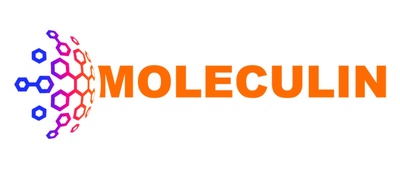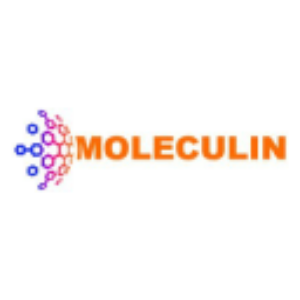Moleculin Announces Independent Study Validates Annamycin's Ability to Target Lung Localized Tumors
Moleculin Biotech (Nasdaq: MBRX) announced validation of Annamycin's ability to target lung-localized tumors through independent laboratory studies. Annamycin may address significant unmet needs in treating sarcomas that have metastasized to the lungs, outperforming the standard treatment, doxorubicin. The drug accumulates in lungs 9-fold higher than doxorubicin and more than 30-fold in its liposomal form. The company plans to submit an IND application for Annamycin before year-end, with potential applications for various cancers beyond sarcoma.
- Validation of Annamycin's efficacy targeting lung tumors through independent studies.
- Annamycin accumulates in lungs up to 9-fold higher than doxorubicin, with liposomal formulation achieving over 30-fold improvement.
- Plans for an IND application before year-end indicate progress in clinical development.
- None.
HOUSTON, Oct. 21, 2020 /PRNewswire/ -- Moleculin Biotech, Inc., (Nasdaq: MBRX) (Moleculin or the Company), a clinical stage pharmaceutical company with a broad portfolio of drug candidates targeting significant unmet needs in the treatment of tumors and viruses, announced results from an independent laboratory validating internal animal studies showing the ability of Annamycin to target lung localized tumors.
Walter Klemp, Chairman and CEO of Moleculin, stated, "This is some of the most compelling data we have seen yet to support our plans for a clinical trial evaluating the potential for Annamycin to treat lung metastatic tumors. There is an extreme unmet need for a more effective treatment of sarcomas that have metastasized to the lungs, and we intend for this to be a primary focus of our next IND for Annamycin. The timing of this new information is particularly encouraging, considering the progress we reported from our recent Pre-IND meeting with the FDA. We are hopeful we can submit this IND before year-end."
The relevance of targeting lung localized tumors is that it could provide a means to address a significant unmet need in cancer therapy. Specifically, there are limited treatment options for lung metastases resulting from a primary tumor, even though the primary tumor may have been treatable. For example, a primary soft tissue sarcoma can often be initially successfully treated (most often by removal), but if it has spread to the lungs, the anthracycline Adriamycin (doxorubicin), the approved treatment for patients whose lung-localized metastases cannot be surgically removed, has only limited efficacy. Research sponsored by Moleculin and recently presented at the American Association of Cancer Research (AACR) Annual Meeting held from June 22nd-24th, 2020 suggested a possible reason for this limited efficacy may be the inability of doxorubicin to sufficiently accumulate in the lungs in concentrations required to kill tumor cells. That presentation included findings from preliminary animal studies demonstrating that Moleculin's drug candidate Annamycin, a more potent and non-cardiotoxic anthracycline, was capable of accumulating in the lungs of mice at up to 6-fold higher concentrations than doxorubicin.
The latest studies conducted in rats validated the previous animal studies presented at AACR. Additionally, these experiments compared both Free Annamycin (F-Anna) and Liposomal Annamycin (L-Anna) with doxorubicin (Dox), which is the current standard of care for sarcomas and other human malignancies including some that have metastasized to the lungs. The purpose of testing F-Anna (the non-liposomal form of Annamycin) was to determine whether the observed uniquely high accumulation of Annamycin in the lungs was due to its liposomal formulation (L-Anna) or whether it is an inherent property of Annamycin itself. The preliminary results show that F-Anna accumulates in the lungs of rats to a concentration 9-fold higher than Dox, demonstrating that the differences in molecular structure of Annamycin when compared to doxorubicin are responsible for Annamycin's comparatively high accumulation in lungs and, we believe, consequently should enable an ability to target tumor cells in the lungs. In addition to the unique properties of the free drug Annamycin, the liposomal formulation further increased accumulation in the lungs and the noted concentration was more than 30-fold higher than Dox. In summary, we believe the apparent ability of the liposomal formulation of Annamycin to further enhance the natural ability of free Annamycin to accumulate in lungs without any observed toxic side effects creates a highly promising anticancer agent that may be uniquely capable of targeting lung localized tumors.
Mr. Klemp concluded, "Although our focus has been on the potential to treat sarcoma lung metastases with Annamycin, we should also point out that the indications for Annamycin might be expanded and could include lung metastatic breast cancer, colon cancer, prostate cancer, bladder cancer, and neuroblastoma. Our animal studies have already demonstrated the ability of Annamycin to significantly increase survival of mice in lung localized triple negative breast cancer and colon cancer models.
As a part of our general approach to anticancer drug design, we are currently also exploring the possibility of targeting other organs that can be considered 'sanctuary sites of cancer'. In our opinion, our additional data continues to point to the potential for Annamycin to become an important drug in a wide range of cancers, especially in light of its lack of cardiotoxicity, which is being demonstrated in our ongoing clinical trials for AML."
About Moleculin Biotech, Inc.
Moleculin Biotech, Inc. is a clinical stage pharmaceutical company focused on the development of a broad portfolio of oncology drug candidates for the treatment of highly resistant tumors and viruses. The Company's clinical stage drugs are: Annamycin, a Next Generation Anthracycline, designed to avoid multidrug resistance mechanisms with little to no cardiotoxicity being studied for the treatment of relapsed or refractory acute myeloid leukemia, more commonly referred to as AML, WP1066, an Immune/Transcription Modulator capable of inhibiting p-STAT3 and other oncogenic transcription factors while also stimulating a natural immune response, targeting brain tumors, pancreatic cancer and hematologic malignancies, and WP1220, an analog to WP1066, for the topical treatment of cutaneous T-cell lymphoma. Moleculin is also engaged in preclinical development of additional drug candidates, including other Immune/Transcription Modulators, as well as WP1122 and related compounds capable of Metabolism/Glycosylation Inhibition.
For more information about the Company, please visit http://www.moleculin.com.
Forward-Looking Statements
Some of the statements in this release are forward-looking statements within the meaning of Section 27A of the Securities Act of 1933, Section 21E of the Securities Exchange Act of 1934 and the Private Securities Litigation Reform Act of 1995, which involve risks and uncertainties. Forward-looking statements in this press release include, without limitation, the ability of Annamycin to be shown safe and effective for the treatment of cancer and the ability of the Company to submit an Investigational New Drug (IND) application before year-end, and to secure IND status for Annamycin for the treatment of lung metastases. Although Moleculin believes that the expectations reflected in such forward-looking statements are reasonable as of the date made, expectations may prove to have been materially different from the results expressed or implied by such forward-looking statements. Moleculin Biotech has attempted to identify forward-looking statements by terminology including ''believes,'' ''estimates,'' ''anticipates,'' ''expects,'' ''plans,'' ''projects,'' ''intends,'' ''potential,'' ''may,'' ''could,'' ''might,'' ''will,'' ''should,'' ''approximately'' or other words that convey uncertainty of future events or outcomes to identify these forward-looking statements. These statements are only predictions and involve known and unknown risks, uncertainties, and other factors, including those discussed under Item 1A. "Risk Factors" in our most recently filed Form 10-K filed with the Securities and Exchange Commission ("SEC") and updated from time to time in our Form 10-Q filings and in our other public filings with the SEC. Any forward-looking statements contained in this release speak only as of its date. We undertake no obligation to update any forward-looking statements contained in this release to reflect events or circumstances occurring after its date or to reflect the occurrence of unanticipated events.
Contacts
James Salierno / Carol Ruth
The Ruth Group
973-255-8361 / 917-859-0214
jsalierno@theruthgroup.com
cruth@theruthgroup.com
![]() View original content to download multimedia:http://www.prnewswire.com/news-releases/moleculin-announces-independent-study-validates-annamycins-ability-to-target-lung-localized-tumors-301156619.html
View original content to download multimedia:http://www.prnewswire.com/news-releases/moleculin-announces-independent-study-validates-annamycins-ability-to-target-lung-localized-tumors-301156619.html
SOURCE Moleculin Biotech, Inc.
FAQ
What did Moleculin Biotech announce on October 21, 2020 regarding Annamycin?
How does Annamycin compare to doxorubicin in targeting lung tumors?
What is the company's plan for Annamycin following the recent study results?
What types of cancer could Annamycin potentially treat?








